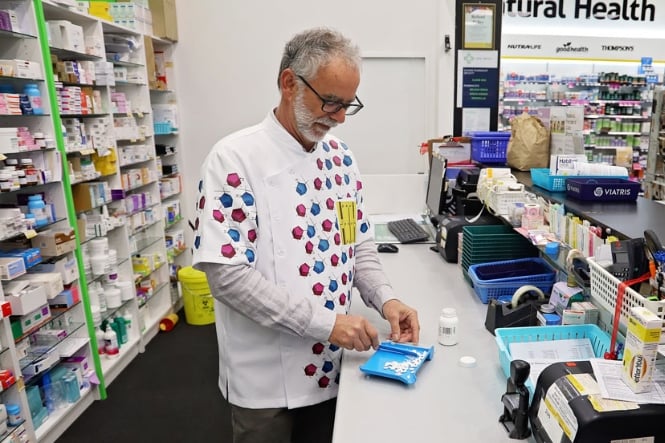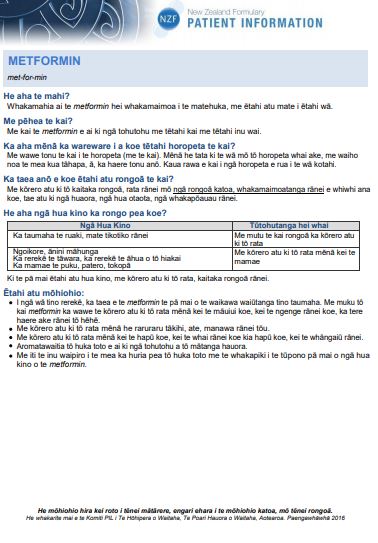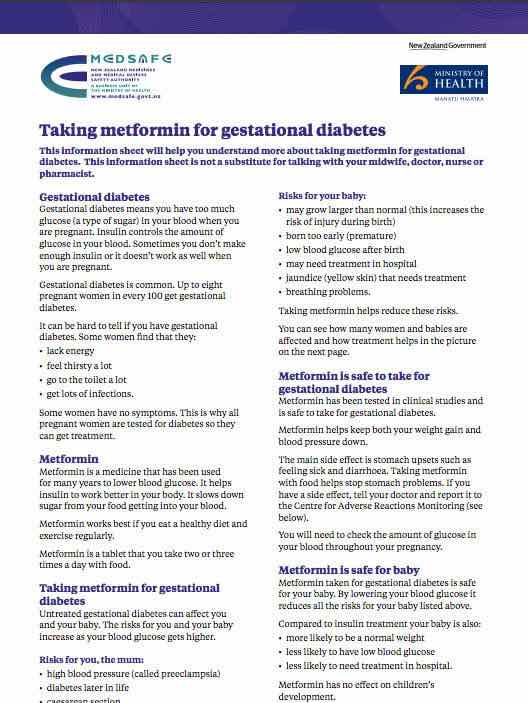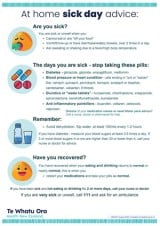You can now add Healthify as a preferred source on Google. Click here to see us when you search Google.
Metformin for diabetes
Sounds like 'met-for-min'
Key points about metformin for diabetes
- Metformin is used to treat and prevent type 2 diabetes.
- Metformin lowers your blood glucose levels and reduces your risk of having a heart attack or stroke.
- Find out how to take it safely and possible side effects.

Metformin is a tablet used to treat or prevent type 2 diabetes. It's usually the medicine of first choice for this condition. Metformin lowers your blood glucose levels and your chance of having a heart attack or stroke. It has other benefits such as mild weight loss. Read more about type 2 diabetes and pre-diabetes.
Metformin can be used alone or in combination with other medicines such as insulin. It's available in a tablet combined with vildagliptin (called Galvumet) or empagliflozin (called Jardiamet).
Metformin may be used to treat gestational diabetes (diabetes that develops during pregnancy). Read more about gestational diabetes and taking metformin for gestational diabetes(external link) (te reo Māori(external link) and Samoan(external link)).
Metformin is also used to manage polycystic ovarian syndrome (PCOS). It can lower insulin levels and help with PCOS symptoms. Learn more about PCOS and metformin for PCOS.
In Aotearoa New Zealand, metformin is available as tablets (500 mg and 850 mg).
- Always take your metformin exactly as your healthcare provider has told you. The pharmacy label on your medicine will tell you how much to take, how often to take it and any special instructions.
- The dose of metformin will be different for different people. Your healthcare provider may start you on a low dose and increase it gradually depending on your blood glucose levels.
- Timing: Each day's tablets are usually divided into 2 doses (breakfast and dinner), or sometimes 3 doses (breakfast, lunch and dinner). Try to take your metformin dose at the same times each day, to help you remember to take it.
- Food: Always take metformin with food – during a meal or just after a meal. This helps to reduce side effects.
- Stay well hydrated: Make sure you drink enough water and stay well hydrated while you are taking metformin.
- Limit or avoid alcohol while you are taking metformin: Alcohol may affect your blood glucose control and increase your risk of side effects such as lactic acidosis. Read more about diabetes and alcohol.
- Missed dose: If you forget to take your dose, take it (with food) as soon as you remember. But if it's nearly time for your next dose, just take the next dose at the right time. Don't take double the dose.
- Keep taking metformin regularly: To control your diabetes you must take metformin every day. Contact your healthcare provider for advice if you have been unwell and missed meals. Treatment for diabetes is usually lifelong. Don’t stop taking metformin without talking to your healthcare provider first.
- If you are thinking about stopping: Speak to your healthcare provider for advice.
Read more about frequently asked questions about metformin.
Here are some things to know when you're taking metformin. Other things may be important as well, so ask your healthcare provider what you should know about.
Have a sick day plan for when you're unwell
If you have diarrhoea (runny poo) or are vomiting (being sick) from a stomach bug, or are dehydrated, it’s important to let your healthcare provider know – they may advise you to stop taking metformin for a few days and start again when you are eating and drinking normally. Read more about having a diabetes sick day plan.
Taking other medicines
Metformin can interact with some medicines, herbal supplements and rongoā Māori, so check with your healthcare provider or pharmacist before starting metformin and before starting any new products.
Having surgery (operation)
You may need to stop taking metformin before having major surgery and some medical tests. Metformin may affect the dye used for an X-ray or CT scan. Let your healthcare team know that you're taking metformin.
Blood tests and monitoring
You’ll have regular blood tests to check how well your metformin is working and to check your kidneys.
Like all medicines, metformin can cause side effects, although not everyone gets them. If you're concerned about any symptoms you think might be related to your medicine, talk to your healthcare provider. The following information offers some guidance but doesn't include all possible side effects.
Common side effects
Tell your healthcare provider if these side effects bother you.
- Nausea (feeling sick), a sore stomach and bloating: Take your metformin with food.
- Diarrhoea (runny poo).
- Changes in taste.
Tell your healthcare provider immediately or phone Healthline free on 0800 611 116 if these occur
- Signs of low vitamin B12 such as extreme tiredness, a sore and red tongue, mouth ulcers, pins and needles or pale or yellow skin. Diabetes and long-term metformin can cause low levels of vitamin B12. You may need to have a blood test to check vitamin B12 if you have symptoms and you may need to take a supplement for this.
- Signs of lactic acidosis such as loss of appetite, nausea, vomiting, stomach cramps, tiredness, diarrhoea and muscle pain. This is very rare and you are at higher risk if you have kidney problems, a severe infection, dehydration, heart failure or drink a lot of alcohol.
Read more about medicines and side effects and reporting a reaction you think might be a side effect.
The following links have more information on metformin.
Metformin(external link) New Zealand Formulary Patient Information te reo Māori(external link)
Metformin(external link) Viatris Medsafe Consumer Information Sheet, NZ
Brochures
Metformin in te reo Māori(external link) New Zealand Formulary Patient Information, NZ, 2024
Taking metformin for gestational diabetes(external link) Ministry of Health NZ, 2017 te reo Māori(external link), Samoan(external link)
At home sick day advice(external link) Health New Zealand | Te Whatu Ora, 2023
5 questions to ask about your medications(external link) Health Quality and Safety Commission, NZ, 2019 English(external link), te reo Māori(external link)
Medicines and side effects(external link) Healthify He Puna Waiora, NZ, 2024
References
- Metformin(external link) New Zealand Formulary
- Metformin Viatris(external link) Medsafe datasheet, NZ
- Metformin – renal Impairment and risk of lactic acidosis(external link) Medsafe 2015
- Type 2 diabetes management toolbox – from lifestyle to insulin(external link) BPAC, NZ, 2021
- A rising tide of type 2 diabetes in younger people: what can primary care do?(external link) BPAC, NZ, 2021
Brochures

My Medicines, NZ, 2016


At home sick day advice
Health New Zealand | Te Whatu Ora, 2023
Credits: Healthify editorial team. Healthify is brought to you by Health Navigator Charitable Trust.
Reviewed by: Angela Lambie, Pharmacist, Auckland.
Last reviewed:





